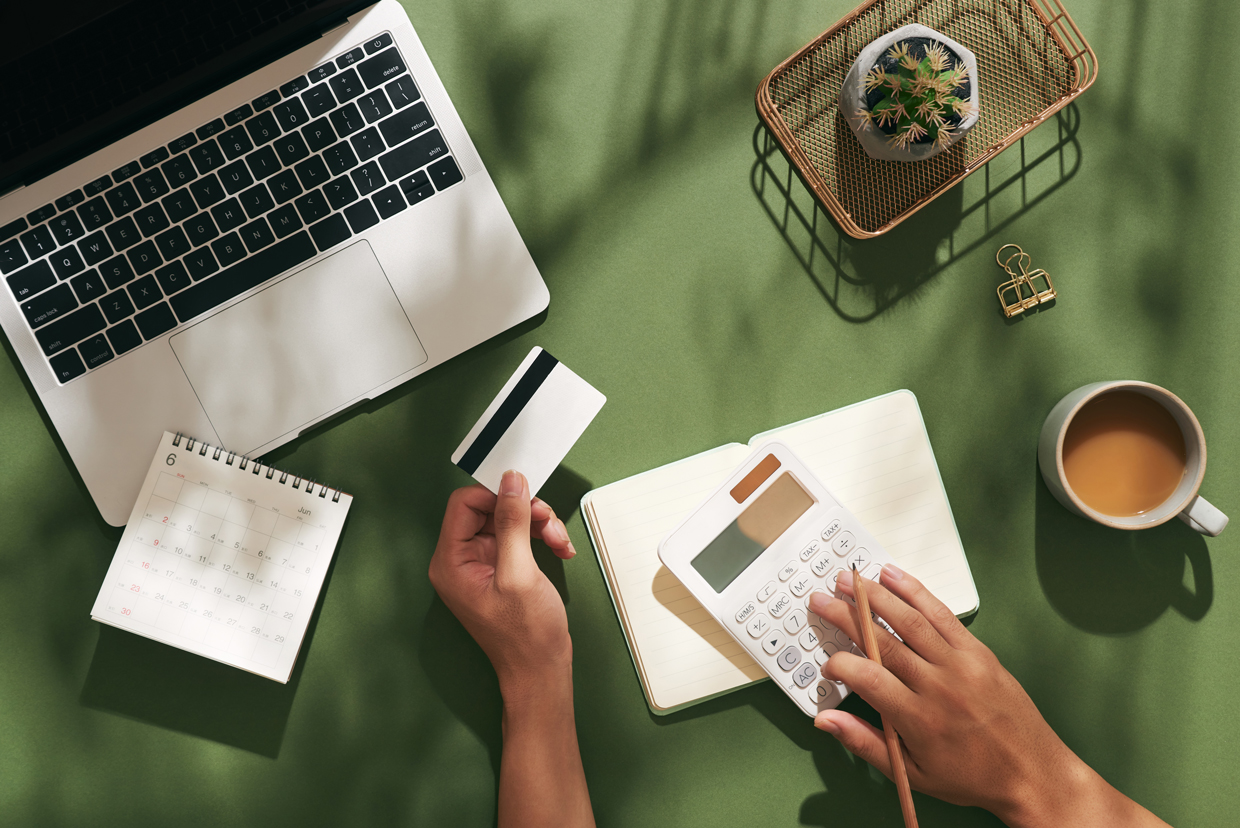Chances are the word budget probably makes you want to run a mile. Organizing finances is a task many of us put off. It can be confronting and even a little scary. However, getting in control of your money is one of the best things you can do for your well-being and confidence. Looking to make 2022 the year you get your head around budgeting? We’re here to help.
Why is budgeting important?
Before we get into the nitty-gritty of how you actually budget, it’s important to take a step back and see why it is so beneficial. Rosie Hooper, a chartered financial planner at Quilter, puts it succinctly: “You can’t manage what you can’t measure. If you do not have a budget in place, then you won’t know if you are spending too much or too little.”
While budgeting is often associated with trying to spend less, Hooper points out this isn’t always the case. “Many people actually underestimate the amount of money they have to spend. While that is perhaps not such a bad thing as it means you are not spending beyond your means, it can also mean that you are being unnecessarily stringent and are depriving yourself of things you could reasonably afford if you wish to.”

Budgeting has taken more importance in recent times. If the pandemic has shown us anything it’s that things are more uncertain than ever. “Being prepared (as far as you can) for the unknown is a big plus,” Emma-Lou Montgomery, associate director at Fidelity International, pointed out. “Having a set budget means that you can be prepared for any changes to your finances. This could range from a sudden drop in your household income, or the cost of living getting more expensive through to something like a pay rise,” Montgomery pointed out.
Most importantly, budgeting helps you feel in control — something we could all do with more of at the moment. “Having a strong sense of control over your finances allows you to plan week to week, month to month, or even year to year, with the sense of security that you know the amount of money you have to spend in that time,” Hooper confirmed.
How to make a budget
Firstly, don’t be afraid. “Budget can have connotations of penny-pinching and being a bit of a Scrooge so you may need to reprogramme your mindset! Why not view your budget as an annual wealth check. It’s not to be feared but something to give you a headstart on your money — you might even find you are a little flusher than you first thought,” Montgomery clarified.
In order to make a realistic annual or monthly spending budget, you firstly need to understand your ingoings and outgoings. “The more realistic the budget, the more likely you are to stick to it,” Hooper reminds us. The best way to do this is to go over your last three months’ worth of bank statements. If you have a standard salary your ingoings are quite simple, if you are self-employed or freelance it’s best to look at a whole year and work out your average monthly income. For outgoings, make a list of all regular payments (bill, subscriptions, and so forth) as well as the amount you spent in terms of spending money. From these two figures, you will get a good idea of what you’re currently earning and spending and this will give you an idea moving forward of a realistic budget. This is a good moment to consider savings and think about how much from your ingoings you wish to commit to saving. You then can have two budgets: your spending budget and your saving budget that both come out of your ingoings pot.
Of course, there are some times of year that are more expensive than others which need to be accounted for. “Once you have a rough figure for the year, you can factor into your budget the additional, one-off expenditures throughout the year, such as Christmas, birthdays, and car or home insurance renewals,” Hooper said. Plus, it’s worth considering adding in a buffer too. Hooper suggests 10-20%: “We all experience life’s hiccups where we unexpectedly need to replace a punctured tire or pay for a child’s school trip. Having additional expenditure already factored into your budget can allow for this, and if you do not spend the additional budgeted money, you can save it into a rainy-day fund ready for when you do need it.”

How to manage a budget
Your relationship with your money is a lifelong commitment and it will have its ups and downs
Once you have worked out how much you want to spend each month, it’s important to try and stick to it. Why not transfer the monthly budget into a different bank account on the first of the month so you can see clearly how much you have spent?
Of course, a budget shouldn’t be set in stone. “It is a good idea to review your budget regularly and tweak it where necessary — every three months is a good place to start,” Hooper suggested. If you are constantly going over, do you need to cut back or increase the budget? If you aren’t spending all of it, could you commit to saving more?
Remember, don’t be too hard on yourself. “If you overspend, don’t lose faith in what you are trying to achieve. Your relationship with your money is a lifelong commitment and it will have its ups and downs. You’re learning as you go along and if you enjoy the odd overspend or budget overreach, stay calm, reassess what’s needed to recoup, and cut yourself some slack. With budgeting, it’s as much about following the rules as it is about learning from mistakes,” Montgomery reassured us.







